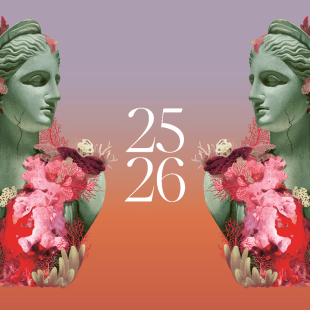Since the outset of his career in 2006, Anglo-French Bass Edwin Crossley-Mercer has been a regular presence on the stages of Europe’s major opera houses and concert halls, from debuts at the prestigious Glyndebourne, Aix-en-Provence and Salzburg Easter Festivals, to performances with the renowned orchestras of Berlin, Vienna, Paris, London and Los Angeles. An exemplary musicianship has allowed Crossley-Mercer to embrace a wide-ranging repertoire of roles across the baroque, classical and contemporary styles bringing collaborations with some of the finest conductors of our day including Daniel Barenboim, Gustavo Dudamel, Andris Nelsons, Philippe Jordan, Riccardo Minasi and Leonardo García Alarcón.
From an earlier bass-baritone repertoire focused principally on Mozart, Rossini, Handel and Rameau, today Crossley-Mercer’s bass voice lends itself to a rich repertoire of roles by composers including Beethoven, Berg, Britten, Strauss, Verdi and Wagner. With a natural affinity for the French repertoire, Berlioz, Gounod, Massenet and Meyerbeer firmly feature on his performing schedule marking debuts at Japan’s Saito Kinen Festival in Béatrice et Bénédicte, with Berliner Philharmoniker/Sir Simon Rattle in La damnation de Faust, at The Dallas Opera in Manon, with Orchestre Philharmonique de Radio France/Daniel Harding in Roméo et Juliette, at Festival d’Aix-en-Provence/Sir Mark Elder in Le Prophète, and with Orchestre National de France in L’enfance du Christ.
Praised for his rich timbre and authoritative bass, in recent seasons Edwin Crossley-Mercer has demonstrated great vocal and dramatic versatility with debuts ranging from Biterolf in Romeo Castellucci’s Tannhäuser at Osterfestspiele Salzburg under Andris Nelsons, Osiride in Tobias Kratzer’s new production of Rossini’s Moïse et Pharaon at Opéra national de Lyon under Daniele Rustioni through to Reimann’s Lear in Christoph Marthaler’s new production at Bayerische Staatsoper under Jukka-Pekka Saraste. Other significant appearances include Don Alfonso (Così fan tutte) for Opernhaus Zürich/Riccardo Minasi and Bayerische Staatsoper/Antonello Manacorda, Colline (La bohème) with Orchestre National de Lille/Alexandre Bloch, von Weber’s Der Freischutz at Staatsoper Unter den Linden Berlin/Daniel Barenboim, and at Theater an der Wien both Guillame Tell under Diego Matheuz and Peter Grimes under Thomas Guggeis. Recent baroque projects include Handel’s Jeptha at Händel Festspeiele Halle, Les Indes galantes at Opéra national de Paris under Leonardo García Alarcón, Platée for Gran Teatre del Liceu and Theater an der Wien under William Christie, and most recently as Hidraot in Lully’s Armide for Opéra Comique, conducted by Christophe Rousset.
In the upcoming season Crossley-Mercer returns to both Opéra Comique and Opéra National Montpellier as Créon in Cherubini’s Médée in a new production by Marie- Ève Signeyrole, conducted by Laurence Equilbey. In his debut performances as Escamillo (Carmen) he returns to La monnaie in Dmitri Tcherniakov’s production under Nathalie Stutzmann. On the concert platform, he makes appearances with Symfoniker Hamburg and at the Bratislava Music Festival as Frère Laurent in Roméo et Juliette under Sylvain Cambreling, with Opera Fuoco in Namur as the title role in Handel’s Hercules under David Stern, and on tour with Les Talens Lyriques for Bach’s Easter Oratorio under Christophe Rousset.
Enjoying a buoyant concert career, Crossley-Mercer has amassed a broad and varied concert repertoire including Beethoven’s Symphony No.9, Haydn’s Die Schöpfung, Handel’s Messiah, Rossini’s Stabat Mater, Janacek’s Glagolitic Mass, Schumann’s Paradies und die Peri, Stravinsky’s Oedipus Rex and Bach’s Matthäus-Passion. A sought-after recitalist and former student of Dietrich Fischer-Dieskau, Crossley-Mercer has presented lied and art song programmes at Bad Kissingen, Festspeiele Mecklenburg, Musée d'Orsay, Festival de Pâques, Festival International de Colmar, and at the Louvre. Twice a Grammy-Award nominée, Edwin Crossley-Mercer’s discography includes several baroque programmes (Charpentier and Lully), a collaboration with American composer Michael Linton on Carmina Catulli and Wilde Songs, a compilation of mélodies by Nadia Boulanger, and Schubert‘s Die Winterreise.
en





